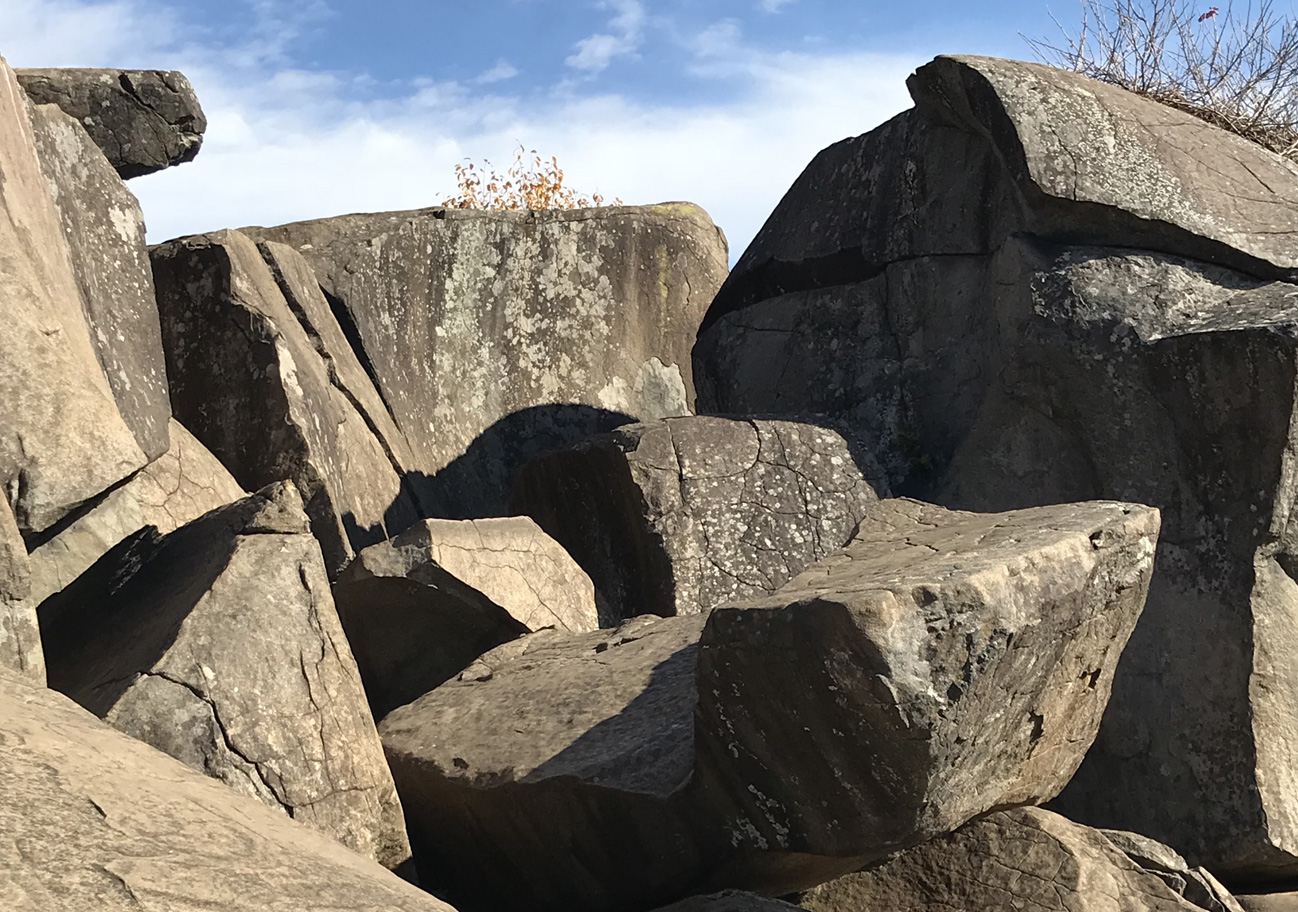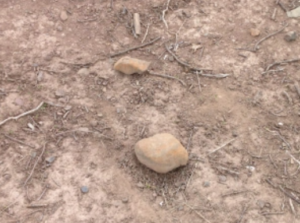
The Gettysburg Battlefield Stone Curse: What Was Taken Must Return
March 30, 2024Are Stones Taken from the Gettysburg Battlefield Really Cursed?
Yes, it is true that stones (and other items) taken from the Gettysburg Battlefield have garnered some reputation for being cursed. Local superstition holds that those who remove items from the battlefield will face misfortune or bad luck, and suggest a “stone curse” may be to blame.

Historical records document the efforts made by the Gettysburg National Military Park to discourage souvenir hunting and the removal of stones from the battlefield, even suggesting that battlefield items should be held as deeply sacred objects. This official stance may contribute to some perception that there is something supernaturally charged, or even cursed, about the stones from the Gettysburg Battlefield.
Before dismissing this as mere superstition, let’s share a few intriguing historical anecdotes that have come to light over the past few decades. Stick around to uncover the truth behind the evidence behind this enduring myth, and what it reveals about the power of the stones of Gettysburg.
What Historical Accounts Support the Notion of a Stone Curse on the Gettysburg Battlefield?
National Civil War parks typically don’t discuss theft from battlefields, as part of an effort to discourage such behavior. But Gettysburg National Military Park has gone on record (if only informally) to describe the consistent, repeated occurrence of receiving packages filled with items, usually rocks or other small objects, taken from the battlefield but later mailed back to the on-site authorities.
For many years, such packages have arrived in the mail, usually addressed just to the park itself. There is seldom a return address. Sometimes, a note explaining the reason for the unusual parcels is enclosed.
An explanation for this phenomenon would be the apparent existence of a widely held superstitious belief among visitors, that taking rocks from the park may cause inexplicable misfortune in the lives of the takers. And that returning the items would break the supposed “stone curse.”
One notable example of such a package was received a few years ago, containing three small stones, accompanied by a letter explaining they were battlefield keepsakes picked up by the writer and his wife a decade earlier.
“We didn’t know how the removal of the stones would affect our lives, and we didn’t know they were cursed,” wrote the returnee. “It wasn’t long after that that our lives fell apart. My wife took my son and walked out on me. I lost my house and [the] majority of what I owned and ended up in jail for nine years. My now ex-wife has fared no better. She has been plagued with health problems and other issues.”
He further explained that after being released from prison, he searched through boxes of old possessions his mother had saved for him and found the three souvenirs from Gettysburg. He recalled reading somewhere that they were cursed. He decided it would be prudent to send the stolen rocks back to the park.
“I’m sorry that we had taken them,” he wrote.
Around the same time another individual returned a small stone and twig, also having removed the items from the battlefield years before. In his own accompanying letter, this person alleged he had experienced “horrible times.” These included being “injured on the job, several surgeries, relationship failures, etc. Perhaps coincidental, maybe, but I’m returning this small stone and twig.” The apologetic letter writer further requested that the purloined items be returned back to the area from which they were taken, in the vicinity of Devil’s Den.
In yet another documented case, a distinctive stone (the “frowning rock”) originally photographed on the battlefield in an 1863 photo was apparently later removed from the site of the photograph. By the 1990s, it was observed and recorded that the famous stone was strangely missing from the modern landscape 130 years later. Yet, a decade later, in 2005, the mysterious rock had actually been returned to its former resting place by parties unknown.

That story has a further chapter: proof of the returned stone gained notoriety among certain circles of Gettysburg battlefield aficionados, and not surprisingly, the stone was taken yet again! It has yet to be recovered. Whether or not its new possessor is currently suffering from the ravages of the alleged stone curse is not known.
While such stories may seem anecdotal, they play a significant role in shaping public perception and reinforcing the belief in a potential stone curse.
What Do Experts Say About the Alleged Curse on Stones from Gettysburg Battlefield?
While anecdotal accounts and popular belief might lend some air of credence to the notion of a curse, it’s essential to consider the perspective of experts in various fields. Archaeologists, historians, and park officials mostly dismiss the idea of a curse as simple superstition.
From a scientific standpoint, there is no empirical evidence to support the existence of a curse on stones from the Gettysburg Battlefield. Yet park officials emphasize the importance of preserving the battlefield’s integrity for future generations. Removing stones for any reason not only disturbs the historical landscape but also disrespects the memory of those who fought and died there.
Ultimately, while the belief in the curse persists in popular culture, experts encourage visitors to refrain from taking souvenirs from the battlefield that could disrupt its historical significance.
How Can We Respectfully Engage with the Gettysburg Battlefield and Its History?
As visitors to the Gettysburg Battlefield, it’s essential for us to reflect on how we engage with this hallowed ground. Rather than seeking souvenirs or relics, we should approach the site with a sense of reverence.
It’s also worth noting that removing rocks from the park is a violation of Chapter 36 of the Code of Federal Regulations, which prohibits “Possessing, destroying, injuring, defacing, removing, digging or disturbing from its natural state a mineral resource or cave formation or the parts thereof.” If caught in the act, perpetrators will be cited and fined.
But perhaps the best way to honor the memory of those who fought and died at Gettysburg is by respecting the integrity of the battlefield environs, allowing visitors to deepen their appreciation for the site as it exists under the continued stewardship of the National Park Service.
Additionally, we can support efforts to preserve and protect the Gettysburg Battlefield for future generations. By respecting park regulations and refraining from removing stones or other artifacts, we contribute to the ongoing conservation efforts aimed at maintaining the battlefield’s integrity. In doing so, we not only pay tribute to the soldiers who sacrificed their lives at Gettysburg but also ensure that future generations can continue to learn from this pivotal moment in American history.
Now that you know a little bit more about rumors of cursed stones from the Gettysburg Battlefield, you may want to reconsider any plans to hunt souvenirs or remove artifacts from the site. Instead, take a moment to reflect on the sacrifices made by soldiers there and deepen your understanding of this pivotal moment in American history.
By doing so, you not only pay tribute to the past but also contribute to the preservation of the Gettysburg Battlefield for future generations to appreciate.
Plus, as an added bonus, you’ll handily avoid any curses that may or may not be in effect where purloined Gettysburg rocks are involved.
Visit Gettysburg in Person
Plan your next excursion with us! Our bus tours of the historic Gettysburg Battlefield are active and ready to show you the sites of the historical battleground. Reservations can be made by calling our toll-free number at 877-680-8687. You can also purchase bus tour tickets online. Tours depart from the Gettysburg Tour Center located at 777 Baltimore St., Suite 100.